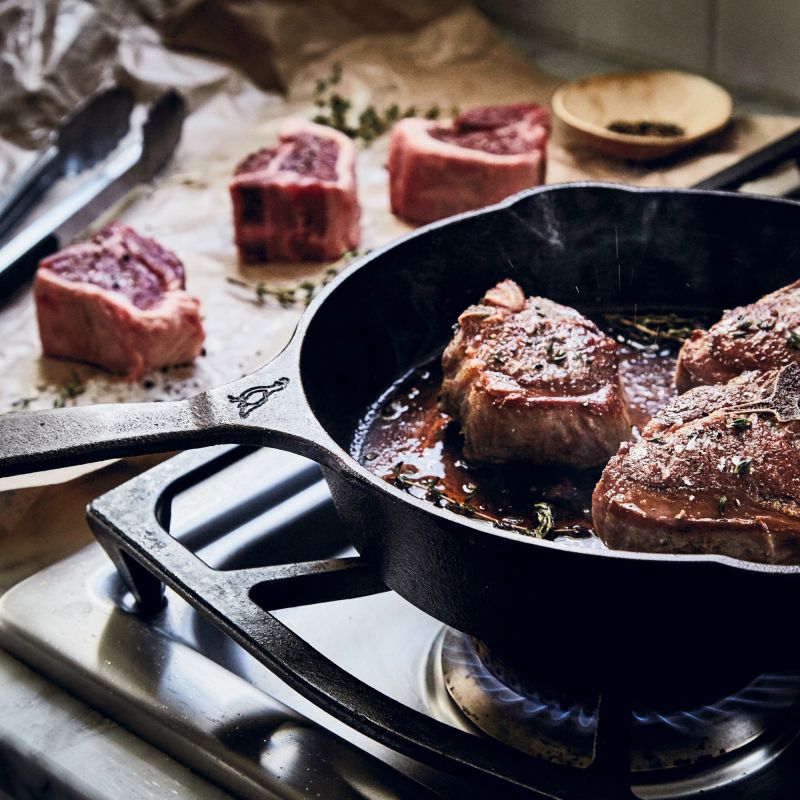
When a family member gifted him a cast-iron skillet manufactured some 120 years ago, Isaac Morton was intrigued by its glassy cooking surface—quite unlike the pebbly ironware common today. “I found myself reading collectors’ books,” he recalls. “I was obsessed. I’d search for rusty, vintage pieces on eBay and at flea markets, restore them in my backyard, and send them to friends and family.” Morton, who has lived in Charleston since 2006, was working for a real estate development and investment company. Yet it wasn’t long before he saw a gap in the market for new high-quality cast iron, and the self-declared lifelong tinkerer got to work.
Smithey Ironware was established in 2015 (its name a play on the iron-smith trade), and Morton’s first 10-inch skillet sold in December. Now with products available at select retailers across the United States, Smithey’s no longer a backyard operation. Morton works with a foundry in the Midwest to mold molten iron into his design, then each piece is finished in shops in Hanahan and on Folly Road. “I get them in raw condition—they feel as though they’re covered in heavy-grit sandpaper,” he explains. “I mill, grind, buff, and tumble each piece, and then I pre-season them. I want my customers to be able to fry an egg right out of the packaging, like you were using a non-stick pan.”
Perfecting the skillet did take some trial and error. “I initially tried constructing a lightweight skillet, but I learned that those with higher mass retain more heat, which ultimately gives a piece of meat the perfect sear.” Morton also teamed with local biz Stitch Design Co. to develop and place Smithey’s quail logo. “In the 1900s, cast-iron companies put their logo and location on the bottom of each piece. I wanted to nod to that history.”
Today, two new skillet designs are in the works; a debut date is yet to be determined. “I’m both the janitor and the chairman of the board,” he says. “But I’m devoted to creating a hand-crafted product a family can invest in. You’ll have a cast-iron skillet forever.”
Cast-Iron Upkeep
While Smithey Ironware skillets come pre-seasoned, owner Isaac Morton shares a few tips for keeping all cast-iron pieces in mint condition
The scoop on seasoning: Applying oil to the pan protects it from moisture (which can cause rusting) and helps keep it naturally non-stick. While cooking with cast iron organically seasons it, Morton suggests wiping on a light layer of vegetable oil every one to two months.
How to do it: Using a paper towel or cloth, apply a thin layer of animal fat, shortening, or flaxseed or vegetable oil to the entire pan, inside and out. Then wipe it off. Place the pan in a 400-degree oven for an hour. Turn off the heat and let it cool.
To clean: Lightly scrub cast-iron cookware with warm water (use soap sparingly for stubborn remnants of food), then dry thoroughly. Do not put cast iron in the dishwasher or let it soak in water.
Find Smithey Ironware online at www.smitheyironware.com, or shop locally at Southern Season, The Commons, Mixson Marketplace, or the Preservation Society of Charleston.